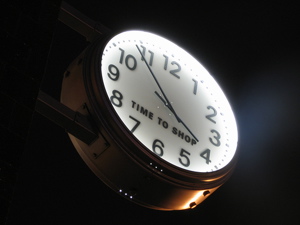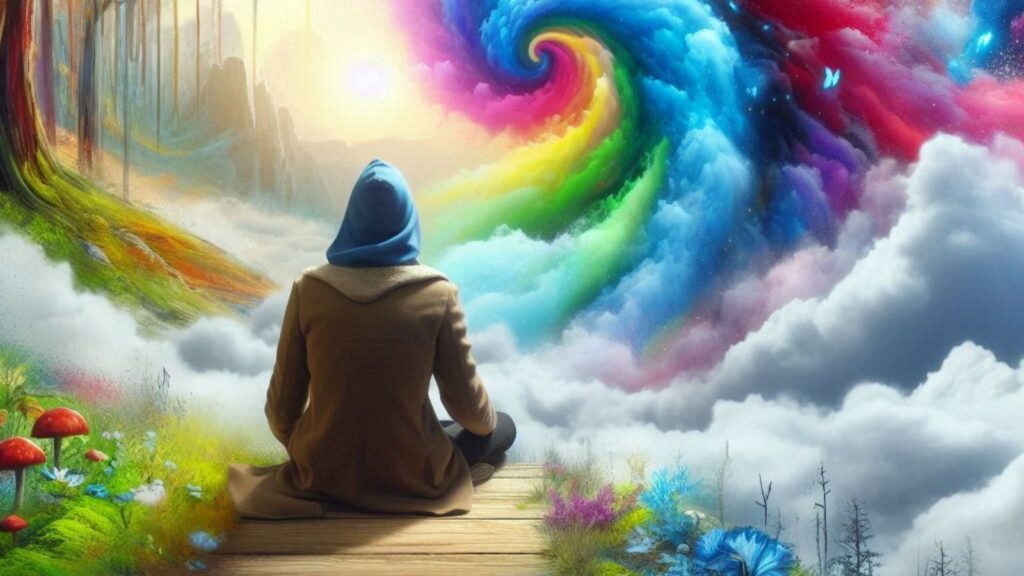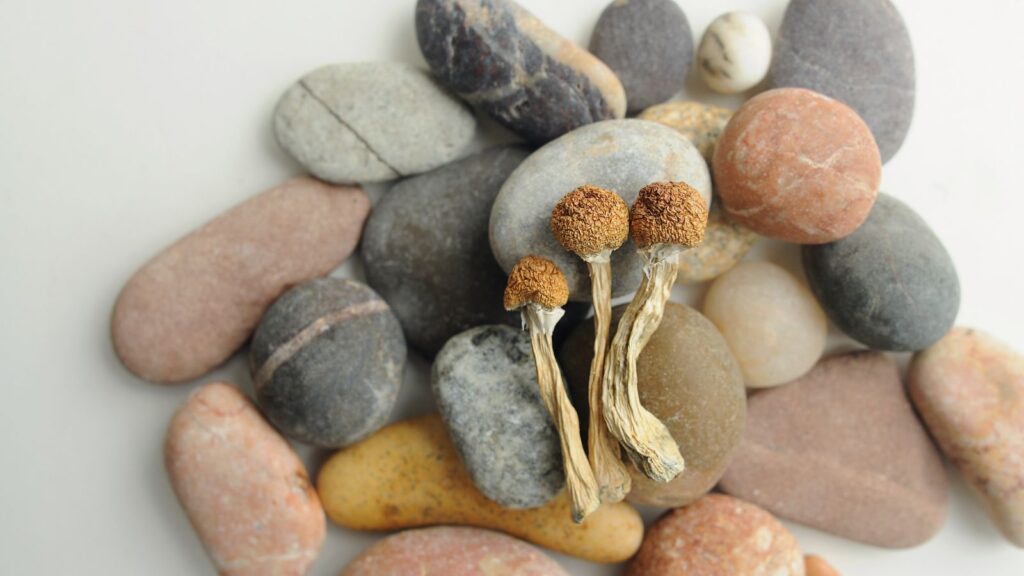"An addict is someone who uses their body to tell society that something is wrong." –Stella Adler (1901-1992)
In last year's powerful independent documentary, What A Way To Go: Life at the End of Empire, producer Sally Erickson pulled from her 20 years working as a therapist in private practice to attempt to explain why so many people, perhaps even you, are so unhappy.
The film from writer-director TS Bennett is an epic exploration of a Middle American, middle-class white father of three coming to grips with climate change, resource crises, environmental meltdown and the demise of the American lifestyle. It is as compassionate a film as it is utterly terrifying.
Through a pastiche of revolutionary thinkers including Derrick Jensen, Daniel Quinn, Jerry Mander, Richard Manning and Chellis Glendinning, What A Way To Go concludes that industrial civilization — and its end product, consumerism — has disconnected us from nature, the cycle of life, our communities, our families and, ultimately, ourselves. This unnatural, inorganic, materialistic way of living, coupled with a marked decline in society's moral and ethical standards — what the French call anomie — has created a kind of pathology that produces pain and emptiness, for which addictive behavior becomes the primary symptom and consumption the preferred drug of choice.
What most of us experience when it comes to addiction," says Erickson, "is a pattern of continually seeking more of what it is we don't really want and, therefore, never being fully satisfied. And as long as we are never satisfied, we continue to seek more, while our real needs are never being met."
Addiction in one form or another characterizes every aspect of industrial society, wrote the social philosopher Morris Berman, and dependence on substances or corporeal pleasures is no different from dependence on "prestige, career achievement, world influence, wealth, the need to build more ingenious bombs or the need to exercise control over everything."
At the very least, this certainly raises questions about the dominant, socially accepted view of addiction, the disempowering, less-than-hospitable "disease model," which claims addiction is a chronic illness predetermined by genetics. The "disease-model" is characterized by a loss of control over substances or practices, along with denial of the severity and consequences of using or engaging in them.
"Current research shows that genetics are the most significant factor in addiction," argues Bruce Sewick, a Chicago area substance abuse clinician who works with the mentally ill. "A person is four times more likely to become dependent on alcohol or drugs when there is a genetic history of the same."
This may be true, but the pervasive pattern of addictive behavior that finds its way into our economics, our politics, and our interpersonal relationships cannot be just explained away using genetic predeterminism. Consumption without need is the hallmark of addiction, and "consumerism" is defined as "the equating of personal happiness with the purchasing of material possessions and consumption." The pattern of out-of-control consumption in the United States, which per capita consumes 70 times more than India, with three times the U.S. population, is not qualitatively different from the well-known patterns of behavior of substance abusers. In fact, it looks as if the United States just finished with the worst binge of its life and is now cresting the peak of a wicked crash.
"I think consumerism is probably a bit of an addiction," offers Richard Eckersley, an Australian public health researcher featured in a 2003 radio documentary, Consumerism, Money, and Happiness:
Addiction is really a hallmark of our era, and I think it reflects that we don't have culturally promoted kinds of other deeper forms of meaning and purpose in our lives. So we make up for it by consuming more. But the evidence is overwhelming that people who are characterized by materialistic attitudes and values actually experience lower well-being, lower happiness, more depression and anxiety and anger than people who aren't materialistic.
While we generally accept that anything can be used addictively, we often tend to forget or overlook why it's being used in the first place. Most professionals will agree that the purpose or function of an addiction is to put a buffer between ourselves and the experience or awareness of our emotions. An addiction serves to numb us so that we are out of touch with what we know and what we feel. Eventually this numb buffer zone becomes a habituated coping mechanism.
"But addiction itself," explains Tom Goforth, a Christian minister and practicing clinical psychotherapist for more than 40 years, "is not innate to the human species. It's something we developed to cope with our predicament."
Over the years Goforth saw most of the addictions he treated develop as the result of some violation of the self, a deep wounding or trauma. This wounding can come from any number of causes: domestic violence and abuse, prejudice and racism, warfare, economic hardship, illness and death, even something as insidiously mundane as rejection, shame, insecurity or feelings of inadequacy.
Primitivist writer-activists like Derrick Jensen and Chellis Glendinning believe that consumer culture drives the "culture of empire," an inherently abusive system built on resource exploitation and the subjugation of peoples. Because of this, those living in it have undergone a collective wounding or trauma that has left society suffering from a mass form of PTSD.
Glendinning is the author of My Name Is Chellis and I'm in Recovery from Western Civilization, a book that examines the relationship between addiction and the ecological crisis. In an essay on what she calls "techno-addiction" Glendinning writes about our "primary" and "secondary" sources of satisfaction. "Primary" needs are those we were born to have satisfied: nourishment, love, meaning, purpose and spirit. When they are not met, we turn to the "secondary" sources, which include "drugs, violence, sex, material possessions and machines." Eventually we become obsessed with the secondary sources "as if our lives depended on them."
Designing and marketing secondary sources of satisfaction falls to the complimenting social, political and economic systems that reinforce addictive behavior in order to drive the consumer machine. Consumption becomes "naturalized" through corporate advertising and marketing, government tax breaks, and officially sanctioned religio-consumer holidays like Christmas, Hanukah and Valentine's Day. Let us never forget that after 9/11 George Bush told Americans it was their patriotic duty to "spend."
"Everything appalling has to be naturalized in order to be justified," says Derrick Jensen, author of the Endgame series and The Culture of Make Believe. "This is because an abusive system is designed to protect the abuser. The whole idea of naturalizing addictions is about maintaining the dependency and victimhood of the addict, the abused."
In a system based on consumption, the best patient a doctor, therapist or pharmacist can ask for is one who never gets better. Is it any coincidence then that in the dominant model an addict always remains an addict? Under this rubric, the addict is always "recovering" and never "recovered." Imagine the psychological impact of imposing a perpetual sense of powerlessness on someone. It must be profound. But it suddenly makes a whole lot more sense when you look at the few socially acceptable surrogates like AA, Prozac, work or Jesus. Aren't these, in a sense, meant to be chronic as well? This approach simply transfers the dependency while preserving the overall system of consumptive behavior.
By the same token, what better consumer can a corporation ask for than one who is never satisfied with what they buy, who always has to have the next, the biggest, the newest in order to feel like they are somebody. If real needs were being met, it's a good possibility that certain markets would contract or collapse. Knowing this, our identities have in a sense been re-engineered to accommodate forced obsolescence, so that every few years we're told we need an upgrade. Tellingly, we call it our "new look" or the "new you." Whole industries are based in this.
Naturalizing addictions through consumerism has its beginnings in early 20th century notions of psychology and social control. The story of how consumerism, and more importantly, the consumer self, came into being is the subject of Adam Curtis' BBC documentary The Century of the Self. It is, at its core, the story of Sigmund Freud.
In response to the barbarism of Nazi Germany during the Second World War, which Freud believed was unleashed by the dangerous and irrational fears and desires that lay deep within the unconscious, Western politicians and planners set about finding ways to control this "hidden enemy within the human mind."
One of the theories that emerged was the brainchild of Freud's nephew, Edward Bernays, the sloganeering progenitor of public relations who helped Woodrow Wilson sell the First World War to the American public by inventing the tag line, "Making the World Safe for Democracy." "[PR] is really just propaganda," Bernays says in the film, "but we couldn't use the word because the Germans had."
Bernays showed American corporations how to make people buy material goods they didn't need by connecting those products to their unconscious desires and unmet needs. This made him incredibly powerful and in demand. He used this influence to propose that the same principles be used politically to control the masses.
This social-control-through-indulgence model was later excoriated in Aldous Huxley's Brave New World, a critique of consumerism and the vapidity of a culture based in pleasure seeking. In Huxley's futuristic dystopia, freethinking and human attachment have either been outlawed or genetically modified out of most of humanity. In its place is a dumbed-down hierarchical society overrun by high-tech entertainment, sexual promiscuity and a powerful, all-purpose intoxicant/narcotic/dissociative drug called Soma, which is used to quell any unpleasant feelings. Perhaps this sounds familiar?
"We can see where consumer psychology has led us," Tom Goforth sighs heavily. "It's a disaster. It's the kind of thing that has caused the human organism and psyche to go so far out of balance. Marketing to our unconscious leads us down a dangerous path that promises satisfaction and wholeness and a sense of importance and worth without us having to do anything but spend. But none of these things come in any real sense unless we work hard at them."
The ego, Freud discovered, is the part of us that invests in the values of society that hold out fulfillment for us. We as individual human beings may be looking for fulfillment through our contribution to society and our own sense of meaning, integrity, love and connection. "But instead," Goforth says, "consumerism teaches the ego to let go of integrity and inflate itself with an aesthetic, material process that confuses, or associates, self-worth with net worth."
This is the gospel preached by activist-performance-artist Reverend Billy of the Church of Stop Shopping, star of the upcoming What Would Jesus Buy?, an anti-consumer road film produced by Super Size Me's Morgan Spurlock. Rev. Billy preaches that consumerism has become our great national addiction.
"If we're ever going to move away from being consumers and back to being citizens, society will need to go into recovery," says the good reverend. "I recommend at least 60 to 90 days away from the shopping just to detox. If we don't repent," he warns, "then the Shopocalypse is coming!"
Asking society to go into a global recovery program is not nearly as Dr. Phil-crazy as it sounds. It's become the new mantra of the green movement, who are now calling for a spiritual solution to the planetary crisis. It was Freud's student and eventual rival Carl Jung who first dissented against Freud's "irrational desires" theory and put forth the idea that addictions address a spiritual loss or deficiency. Because the addictive experience is mimetic of the spiritual experience, you can have an imitation of bliss or oneness, but it doesn't last. Jung believed only a true spiritual awakening will end an addiction. Likewise, the eco-ilk believe only a global spiritual awakening will end the consumer addiction that is ravaging the planet.
In Steps to an Ecology of Mind, Gregory Bateson, the evolutionary philosopher husband of anthropologist Margaret Mead, observed that addictive behavior is consistent with the Western approach to life that pits mind against body. Because of this schism, Bateson gave our species a low probability of continued survival.
In order to avoid this literal death," Derrick Jensen adds soberly, "society will have to go through a cultural death and spiritual rebirth."
Heady words for sure, but it may be our only way out of this mess. For this process to begin, consumer society must first "hit bottom." Let us hope this happens soon. As Sally Erickson reminds us, the patterns of behavior endemic to consumer society are so much more dangerous than substance abuse, because they are perpetuating a culture that is literally eating itself out of house and home. If addicts define insanity as doing the same thing over and over again, and expecting different results, this may be the clearest sign yet that consumerism is driving us all crazy.
But there is hope to leave you with. In his 40 years treating addicts, Tom Goforth will honestly tell you that, by and large, those who did truly conquer their addictions became less materialistic and more aligned with a sense of who they really were and what they felt their life purpose was.
Maybe it's time for that intervention.
Charles Shaw is a Chicago-based writer. He is the former editorial director of the Conscious Choice publications and a contributor to Reality Sandwich. He is currently writing Exile Nation, a drug war memoir.
This article was originally published on Alternet.
Image by Patrick Boury, used courtesy of a Creative Commons license.











